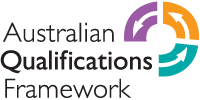This unit describes the performance outcomes, skills and knowledge required to promote the highest standards of ethical conduct in the workplace.
This unit applies to those working autonomously, as part of a team and with management responsibilities, in public sector roles or in similar organisational contexts. They perform sophisticated tasks in familiar contexts.
The skills in this unit must be applied in accordance with Commonwealth and State or Territory legislation, Australian standards and industry codes of practice.
No occupational licensing, certification or specific legislative requirements apply to this unit at the time of publication.








